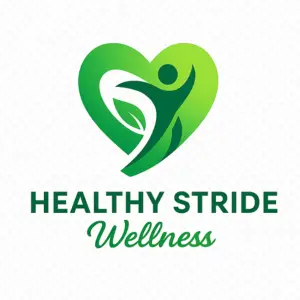The Benefits of Journaling for Mental Health and Self-Care

At Healthy Stride Wellness, we understand the importance of prioritizing mental health and self-care in today’s demanding world. We need to take care of ourselves and our mental health more than ever in this fast-paced world.
One effective, accessible, and low-cost method to enhance mental health and self-care is journaling. This article explores the numerous benefits of journaling for mental health and self-care, providing insights and practical tips for getting started.
Table of Contents
Key Takeaways
- Enhanced Emotional Clarity and Stress Reduction: Journaling helps in expressing and understanding emotions, leading to greater emotional clarity. It also serves as an effective tool for stress management, allowing individuals to offload worries and anxieties onto paper, which can significantly reduce stress levels.
- Improved Mental Health and Well-being: Regular journaling has been shown to alleviate symptoms of anxiety and depression, improve mood, and enhance overall emotional well-being. It encourages mindfulness and self-awareness, contributing to better mental health.
- Personal Growth and Self-Care: Journaling promotes self-reflection and personal growth, encouraging a positive mindset and fostering gratitude. It helps in setting and tracking personal goals, strengthening self-discipline, and integrating effectively with other self-care practices like meditation, therapy, and physical exercise.
What is Journaling?
Definition and Explanation
Journaling involves writing down thoughts, feelings, and experiences in a structured or unstructured format. This practice has been used for centuries as a way to process emotions and record personal growth.
Types of Journaling
Gratitude Journaling
Gratitude journaling focuses on recording things you are thankful for. It makes you feel thankful and happy to think about the good things in your life.
Bullet Journaling
Bullet journaling combines planning and reflection. It uses bullet points and symbols to organize tasks, thoughts, and goals, providing a clear overview of daily activities and long-term plans.
Expressive Writing
Expressive writing involves freely writing about thoughts and feelings. This type of journaling helps in processing emotions and gaining clarity on complex issues.
The Science Behind Journaling
Research and Studies
Numerous studies support the mental health benefits of journaling. Research has shown that regular journaling can reduce stress, alleviate symptoms of depression and anxiety, and improve overall emotional well-being.
Impact on the Brain and Emotions
Self-care and mental health have become very important to our general health in today’s fast-paced world. Writing about emotions helps in processing and organizing thoughts, leading to better emotional management.
Emotional Benefits of Journaling
Stress Reduction
Journaling provides an outlet for stress, allowing individuals to unload worries and anxieties onto paper. This practice can significantly reduce stress levels and promote relaxation.
Emotional Clarity and Expression
Writing about feelings helps in understanding and expressing emotions more clearly. This enhanced emotional clarity can lead to better communication and healthier relationships.
Processing Traumatic Events
Self-care and mental health have become very important to our general health in today’s fast-paced world. It allows individuals to confront and make sense of traumatic events, facilitating healing and recovery.
Mental Health Benefits of Journaling
Reducing Anxiety and Depression
Journaling helps identify negative thought patterns and replace them with positive ones. This reorganizing of the mind can make anxiety and depression feelings a lot better.
Improving Mood and Well-being
Regular journaling is associated with improved mood and a greater sense of well-being. Writing about good times and accomplishments makes you happier and more satisfied.
Enhancing Mindfulness and Awareness
Writing in a journal keeps you in the moment, which makes you more aware. This practice enhances self-awareness and promotes a deeper understanding of one’s thoughts and feelings.
Self-Care Benefits of Journaling
Promoting Self-Reflection and Growth
Get past obstacles by keeping your journals close at hand and setting alarms to help you stick to a regular routine. This reflective practice encourages personal development and self-improvement.
Encouraging a Positive Mindset
Recording positive experiences and achievements helps in cultivating a positive mindset. This practice boosts self-esteem and fosters a sense of gratitude and optimism.
Strengthening Self-Discipline and Goal Setting
Journaling helps in setting and tracking personal goals. This structured approach enhances self-discipline and increases the likelihood of achieving desired outcomes.
Journaling Techniques for Mental Health
Guided Journaling Prompts
Using guided prompts can help structure journaling sessions. Prompts provide specific questions or themes to explore, making journaling more focused and effective.
Stream-of-Consciousness Writing
Stream-of-consciousness writing involves writing continuously without filtering or editing thoughts. This free-form approach helps in uncovering subconscious thoughts and emotions.
Using Creative Elements
Incorporating creative elements like drawing or poetry can make journaling more engaging. Creative journaling allows for a more expressive and holistic exploration of feelings.
How to Start a Journaling Practice?
Choosing the Right Method
Selecting a journaling method that suits your preferences is crucial. Whether it’s digital journaling or traditional pen-and-paper, choose a format that feels comfortable and accessible.
Setting a Regular Schedule
Establishing a consistent journaling routine helps in making it a habit. Set aside a specific time each day for journaling to ensure regular practice.
Staying Consistent
Get past obstacles by keeping your journals close at hand and setting alarms to help you stick to a regular routine.
Journaling Tools and Resources
Recommended Journals and Notebooks
Choosing the right journal can enhance your journaling experience. Look for journals with features that suit your needs, such as lined pages, prompts, or portability.
Digital Journaling Apps
Digital apps offer convenient options for journaling on the go. Popular apps like Day One, Journey, and Penzu provide various features to enhance the journaling experience.
Additional Resources
Books, websites, and online communities can provide additional inspiration and support for your journaling practice. Explore these resources to stay motivated and engaged.
Overcoming Common Challenges in Journaling
Dealing with Writer’s Block
Writer’s block can hinder journaling efforts. Overcome this by using prompts, free-writing, or changing the journaling format to keep the practice engaging.
Addressing Privacy Concerns
Ensure your journal is stored securely to address privacy concerns. Use password-protected digital journals or keep physical journals in a safe place.
Staying Motivated
Maintain motivation by setting small, achievable goals for your journaling practice. Celebrate milestones and remind yourself of the benefits to stay committed.
Real-Life Success Stories
Testimonials
Hearing about others’ success with journaling can be inspiring. Many individuals have experienced significant improvements in mental health through regular journaling.
Transformative Effects
Case studies show how journaling has transformed lives, helping people manage mental health issues and achieve personal growth.
Journaling for Specific Mental Health Issues
Journaling for Anxiety
Techniques for journaling, especially meant to help with anxiety, can be quite successful. Explore prompts and methods that target anxiety reduction.
Journaling for Depression
Structured journaling practices can help alleviate symptoms of depression. Focus on positive experiences and self-reflective prompts to improve mood.
Journaling for PTSD
Journaling provides a safe space for processing traumatic experiences. Use specific prompts and techniques to support PTSD recovery.
Combining Journaling with Other Self-care Practices
Integrating with Meditation and Mindfulness
Combining journaling with meditation enhances mindfulness. Reflect on meditative experiences and explore thoughts and feelings in your journal.
Using Journaling Alongside Therapy
Journaling can complement professional therapy. Share journal entries with your therapist to gain deeper insights and enhance therapeutic progress.
Pairing with Physical Exercise
Physical exercise and journaling are a powerful combination for overall well-being. Reflect on your fitness journey and set goals in your journal.
Expert Tips for Effective Journaling
Insights from Mental Health Professionals
Mental health professionals offer valuable advice for effective journaling. Incorporate their tips to maximize the benefits of your practice.
Techniques for Deepening Your Practice
Advanced journaling techniques can deepen your practice. Experiment with different methods and prompts to keep journaling engaging and effective.
Common Pitfalls to Avoid
Avoid common journaling mistakes by staying consistent, maintaining privacy, and setting realistic expectations for your practice.
Finally
Journaling offers numerous benefits for mental health and self-care. By reducing stress, enhancing emotional clarity, and promoting personal growth, journaling is a powerful tool for improving overall well-being. Start your journaling practice today and experience the transformative effects on your mental health and self-care.
Unlock your inner strength! Write your way to better mental health with journaling tips from Healthy Stride Wellness.
FAQs
Can journaling replace therapy?
Journaling is a valuable self-care tool but should not replace professional therapy. It can complement therapy for enhanced benefits.
What type of journal should I use?
Choose a journal that suits your preferences, whether it’s a digital app or a traditional notebook. The format should be comfortable and accessible.
How can I ensure my journal remains private?
Keep your journal in a secure place, use password protection for digital journals, and set boundaries with others about your journaling practice.
Please Note: Healthy Stride Wellness provides educational content and is not a replacement for medical advice. Consult a healthcare provider for any health issues.




